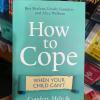Monday 2 May 2022
Dear Professor Ryan
RE: Arts Refresh Process
As staff members of the School of Arts, we understand that ACU needs to ensure that its offerings are financially sustainable. As a School, we have demonstrated our commitment to the School and our willingness to engage with this requirement through our energetic participation in the extensive “Arts at ACU: The Way Forward” process in 2021. We are, after all, those who care about it most.
At last Tuesday’s Town Hall, you presented Arts staff with a new consultation process, titled “Arts Refresh”. We have serious concerns about this process, which we outline in full below. Unless our concerns are addressed, many staff will not be comfortable participating in another consultation which fails to consider the views of our staff.
We, the undersigned, call for the following:
- Staff are provided with a clear explanation as to why the previous process was abandoned, why no plan emerged from the that process, why we are moving into an implementation phase without a plan, and why a process that began as broad-ranging review with stakeholders across the University suddenly became solely an internal school focus.;
- Staff are provided with a strong, detailed and persuasive evidence base – inclusive of ACU-specific market research and student feedback – to justify the plan to pursue a common first year for ACU Arts students.
- Staff are provided with clear answers to the range of questions around this newly proposed consultation process, such as issues relating to conflicts of interest, and procedures around how feedback and recommendations will be received and used by Faculty leadership.
Acting on these requests will allow ACU to further Priority 4 in its latest Strategic Plan: “maturing its impact on the arts and humanities”, and “build[ing] … and retain[ing] academic talent”. Responding to these reasonable requests will further allow ACU’s Mission (including its commitment to Impact Through Empathy) to have real meaning for its actions as an employer.
We now elaborate about our abovementioned key concerns about the newly proposed Arts Refresh process:
- Concerns about the Proposed Common First Year
Arts staff were concerned to learn at your recent Town Hall that the decision to have a common first year has already been made – without sufficient consultation or rationale. The idea for a common first year did not emerge from the “Way Forward” consultation process, nor was the idea discussed at any previous Town Hall, focus group or meeting of the “Way Forward” working party meeting. We have attached a history of this extensive previous consultation as an appendix to this letter. Requiring Arts students to take an additional suite of compulsory common subjects in first year is a major proposal with significant implications for the choice and flexibility of our students, as well as potential job losses for staff.
Given this, we call for you to address the following:
- The current process initiated by you has been labelled the ‘implementation phase’ of the previous process, which suggests continuity. How is it that the faculty is instigating an ‘implementation phase’, when it has not yet devised a plan, as staff had been anticipating? If this is indeed the implementation of a plan, we request that the full Nous report, recommendations and resulting plan be circulated to the School, particularly the decision and rationale to pursue a common first year.
- You stated that “the idea [for a common first year] came from initial discussions with members of the Faculty”. Who specifically in the faculty was consulted and provided feedback on the common core before you shared the plan with the School? Why were those people approached and not the entire School? When did these discussions take place? What feedback was provided?
- Are the Interim Provost, Professor Meg Stuart, and the Vice Chancellor and President, Professor Zlatko Skrbis, aware and supportive of your proposal for a common first year in Arts?
- How would a common first year in Arts not replicate or impinge on compulsory core units? Given that anecdotal evidence points strongly to serious dissatisfaction among many students with these offerings – a point reinforced by a review conducted a few years ago by Professor Gail Crossley – and their compulsory nature, how would a common first year enhance student experience? And how would choice and flexibility in Arts offerings be preserved?
- You stated that students were “interviewed in a number of different forums including by MER and during the campus optimisation project. Feedback has also been provided via academic staff.” Which students were interviewed, how many and when did these take place? What feedback did students provide? To what staff has it been provided? You also stated that there has been market research conducted but that this is “commercial in confidence”. Why is this the case? The Nous process (and data) was open and transparent, but your proposed process seems to be shrouded in secrecy with previous and private consultation and selective data being off the table for School-wide analysis. Can you clarify why this is the case?
- You made repeated references to a “proposed model” in your Town Hall and written communications, but you also stated that the “work is yet to be determined”. Is there or is there not a proposed model? If there is one, what is it? Who devised this model and on what evidence is it based?
- You have referred to the current process in ways that would suggest that ACU sees the process in the school as being at quite an advanced stage of “major change” as outlined in the Australian Catholic University Staff Enterprise Agreement 2017-2021, such as describing us as being in the “implementation phase”. However, in our view the University has yet to formally begin a major change process in relation to the School of Arts. We seek clarification as to whether the University believes that it has begun formal consultation, as outlined in the Enterprise Agreement, of staff in the school?
- Concerns about Process and Methodology
Last week, staff were asked to participate in a consultation process that would be comprised of three streams. Beyond questions relating to the evidence base informing these streams and how they were devised, staff raised a number of concerns about how the consultation process would proceed in an impartial, transparent and accountable manner. Beyond a general timeframe of less than 6 weeks (May 4-June 5) and the names of the stream chairs and their support staff from the Provost’s office, we were given no meaningful information on the parameters of these consultations, the methodology being followed or key milestones in the process. Staff have already done their consultation in good faith, but we are now being asked to consult again in a new process that ignores the previous consultation, and in the absence of a clear proposal, rationale (including data) for the proposal, or a methodology for the new consultation process itself.
This new proposed process raises more questions than it answers. These include:
- Where is the plan that we are currently implementing? We take the issue of formulating a plan for the School of Arts seriously, as indeed should the Faculty and University leadership. At ACU, we have systems in place to ensure that no new plan, proposal or review would happen without important governance processes, and we share those expectations. These processes must include a well-developed rationale, transparent display of consultation including a market analysis, a risk assessment, budgetary considerations, and impacts on staffing. This proposal lacks even the most basic planning or strategic discussion. As part of our commitment to a quality program, we expect more than a PowerPoint presentation and a briefing. We would like to see the meeting papers and evidence that underpins the proposal and associated procedures.
- As part of your proposed consultation, staff will be asked to make recommendations to rationalise units and courses, but you stated that the “Faculty leadership will manage staffing implications”. In what meaningful sense are these two processes separate?
- Staff see collegiality as crucial to the School’s Catholic difference and their own contribution to ACU’s Mission. How will conflicts of interest be managed throughout the process, given that staff will be asked to make recommendations that may have direct impacts on their own workloads and those of colleagues?
- How many staff will be involved in each of the streams and to whom will the Chairs of the streams report? How will feedback from the streams be communicated to Faculty leadership? Impartiality cannot be assured when those chairing the streams and communicating their recommendations to Faculty leadership all have vested interests in the School’s priorities by virtue of their membership in the School. How will impartiality and objectivity in this process be achieved?
- Will the meetings of the streams be minuted? Will their recommendations be communicated in full to staff and relevant members of the senior leadership and governing bodies within the University?
- You stated that the consultation is an “extremely important piece of work as it pertains to the future of arts”. Why then the tight timeframe of 6 weeks at a time when staff are approaching end of semester, a period of heavy marking and frequent research commitments?
In conclusion, the National School of Arts has been in limbo for over four years. This is unacceptable and puts significant strain on staff mental health and wellbeing. We want what’s best for the School and want to work with Faculty to ensure that happens. As a School, we have demonstrated that we are happy to engage with Faculty leadership, and we are now calling for you to engage with us. This will ensure that our proposals are properly thought through, and that consultation is genuine, transparent and respectful. Not to engage with us risks serious reputational damage to the University. We expect that you will clearly and honestly address our concerns and questions. We look forward to a detailed response.
Appendix: History of Previous Consultation
Staff in the School of Arts were informed in mid-2018 that a change plan was imminent.
In 2019, there was a review of the Education degrees, which should provide a cautionary tale. During this process, major changes were made, without consultation and implemented outside of existing governance requirements, that had significant impacts on numbers in the School of Arts. Staff representatives in the School of Arts argued against these changes, but Faculty leadership ignored the concerns. Indeed, this botched process is a major factor in the current situation facing the FEA in terms of declining student numbers. The School is now living with the implications of this poorly planned, poorly executed and secretive process undertaken by the Faculty. It is also possible that the discontinuation of popular 4-year Bachelor of Teaching/Bachelor of Arts degrees is contributing to the decline in numbers in Education degrees. Given the Faculty’s history of poor decision-making and lack of consultation, perhaps an independent inquiry into how this serious failure of governance was able to happen would be a valuable exercise so that we could avoid repeating this situation in the current context. We understand that you were not the Executive Dean at the time, but merely to “note” this concern, as you did in your response at the Town Hall, is not sufficient engagement on an issue that has led to a significant drop in student numbers across the School – not to mention anxiety among staff.
In the latter half of 2021, it seemed that the long wait for the School of Arts was over. On September 8, 2021, the then Provost, Professor Belinda Tynan, initiated a process, “Arts at ACU: The Way Forward”, aimed at involving Arts staff in producing new ideas for curriculum and course offerings to address the School’s current budgetary shortfall. As a gesture towards the importance of genuine consultation and staff input, the Provost agreed to allow School staff to nominate a representative on the working party. Staff nominated Associate Professor Maggie Nolan as their representative for a working party tasked with overseeing the process. The then National Head of School of Arts was also appointed as a member of that working party in response to a staff request.
From the beginning, “Arts at ACU: The Way Forward” was an inter-faculty consultation involving people across FTP and FLB, and staff from the research institutes also participated. This process demonstrated the strong support for and commitment to the Arts and Humanities across the University, and a recognition of its importance to a Catholic University.
As part of the “Way Forward” process, Arts staff attended four Town Hall meetings, one of four 2-hour focus groups hosted by external consultants which the nominated staff representative attended, and further meetings to workshop and write submissions, several of which were then submitted to the working party. The working party also held 13 meetings over some months to consider the findings of the focus groups’ and staffs’ submissions. The nominated staff representative also met with 11 different discipline groups to gather information, and 14 one-on-one meetings with numerous staff, including the new Interim Provost, Deans, Heads of School, and Institute Directors across the University to gather staff views. All these meetings and discussions took place in good faith.
The “Way Forward” working group held their last meeting on 28 February 2022 with a view to forming a smaller group and devising a plan based on its consultation with staff. Prior to that meeting, the new Interim Provost, Professor Meg Stuart, assured Associate Professor Nolan, the nominated Arts staff representative, that she would be a member of the smaller working group. That assurance never eventuated. The new “Arts Refresh” process has instead been devised by the new Faculty of Education and Arts leadership, and its core elements do not meaningfully reflect any of the staff input. Moreover, stakeholders outside of the School have been excluded from the process without explanation, which means the Faculty is not drawing upon the significant institutional and disciplinary expertise that the University has to offer for this significant piece of work. Instead, the new Faculty leadership abandoned the process to which staff across the University had contributed and committed themselves. By the time Associate Professor Nolan met with the Executive Dean on 11 April 2022, this new process – outlined at the Town Hall on Tuesday April 26 - had already been formulated.
This new proposed consultation process does not appear to have emerged from the extended “Arts at ACU: The Way Forward” consultation process and is not, in any meaningful sense, a continuation of the earlier process.















